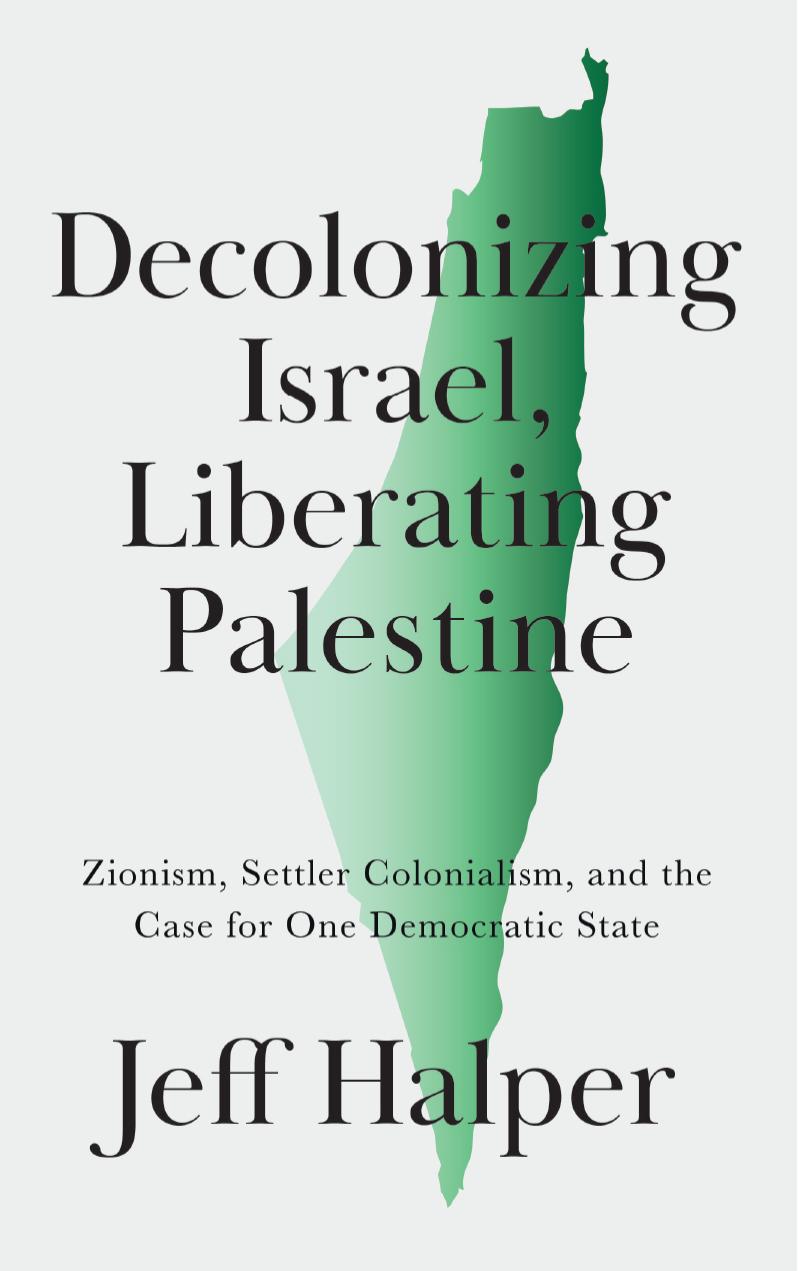Decolonizing Israel, Liberating Palestine by Jeff Halper;

Author:Jeff Halper;
Language: eng
Format: epub, pdf
Publisher: Book Network Int'l Limited trading as NBN International (NBNi)
BACK TO DECOLONIZATION â AND THE SEARCH FOR APPROPRIATE FORMS OF POWER
We have to go back to the first and second stages of the PLOâs political program, almost half a century, to find a comprehensive and relevant vision of what form decolonization might take. The steady abandonment of the anti-colonial struggle for a two-state solution and conflict resolution in the 1970s and 1980s meant that from that time to this, no detailed program of decolonization has ever been presented, not by the Palestinian leadership or by its academics or civil society activists. Nonetheless, the rise of a new cycle of settler colonial analysis in the last two decades has revived this perspective, both theoretically and politically. Today a massive literature exists that has relocated the issue of Palestine firmly back into the colonial frame. More significant politically, settler colonialism, always the language of the Palestinian people, has become accepted as part of the mainstream political discourse. I would humbly suggest a fourth phase of Palestinian political mobilization (reflected in civil society, however, not the PLO, the PA or the political parties): the return to an anti-colonial analysis. Although the progression from the two-state solution to a one-state conception happened over time (and is still ongoing), it may be useful to mark the transition to a one-state/decolonization position roughly from the collapse of Kerryâs diplomatic initiative in 2014, the subsequent completion of Israelâs settlement project (i.e., Judaization) in East Jerusalem and the West Bank, and the rise of a discourse of settler colonialism, first in academic circles, slowly spilling into the popular discourse.
What seems clear from all this is that decolonization remains the only way out of Zionist settler colonialism. The Palestinians must struggle for their self-determination within a new, inclusive polity that replaces Israel and its occupation. Given their non-state status, however, they must do so by summoning sources of power outside of the formal international system of international law and diplomacy, finally forcing the international system to deal justly with their rights and claims. We will suggest in Chapter 9 that mobilizing the international civil society is key to a grassroots strategy, perhaps the only one available to a colonized people facing an internationally recognized colonial regime. Before we consider a plan of decolonization, organization and strategy, letâs return to the key question before us: what is the most effective form of summoning power in the Palestine/Israel situation?
My agenda here follows that of Svirsky: âto trace the forces that cause the settler structure to fail and remain incomplete â forces that work either by compelling retreat in specific policy areas, or because of the ineffectiveness of the settler structure in territorialising its logic and imposing its discourse, codifications, and meanings in all areas of life.â39
Surveying the vast landscape of Palestinian resistance and agency, one can only appreciate the many forms it has assumed: demonstrations and attacks, armed resistance and martyr operations, Intifadas, non-violent resistance and BDS campaigns (Boycott, Divestment, Sanctions); remaining sumud (steadfast) and engaging in the constant mini-resistance
Download
Decolonizing Israel, Liberating Palestine by Jeff Halper;.pdf
This site does not store any files on its server. We only index and link to content provided by other sites. Please contact the content providers to delete copyright contents if any and email us, we'll remove relevant links or contents immediately.
| Africa | Americas |
| Arctic & Antarctica | Asia |
| Australia & Oceania | Europe |
| Middle East | Russia |
| United States | World |
| Ancient Civilizations | Military |
| Historical Study & Educational Resources |
The Battle of Mogadishu by Matt Eversmann & Dan Schilling(698)
The Confidence Men by Margalit Fox(650)
The Spymaster of Baghdad by Margaret Coker(620)
A History of the Muslim World since 1260: The Making of a Global Community by Vernon O. Egger(616)
Jack the Ripper and the East End by Peter Ackroyd(583)
Empire of Fear: Inside the Islamic State by Andrew Hosken(564)
The Afghanistan File by Prince Turki AlFaisal Al Saud(549)
The Crimean War by Winfried Baumgart(544)
Akhenaten by Dominic Montserrat(535)
The Jerusalem Diamond by Noah Gordon(531)
Islam At The Gates: How Christendom Defeated the Ottoman Turks by Diane Moczar(530)
A Concise History of Greece (Cambridge Concise Histories) by Richard Clogg(527)
The History of Jihad by Robert Spencer(526)
Beirut 2020 by Charif Majdalani(514)
Israel: Ancient Kingdom or Late Invention? by Daniel I. Block(512)
Enemy in the East by Rolf-Dieter Müller(509)
The Privatization of Israeli Security by Shir Hever(500)
Destroying a Nation: The Civil War in Syria by Nikolaos van Dam(493)
The Nine Lives of Pakistan by Declan WALSH(490)
